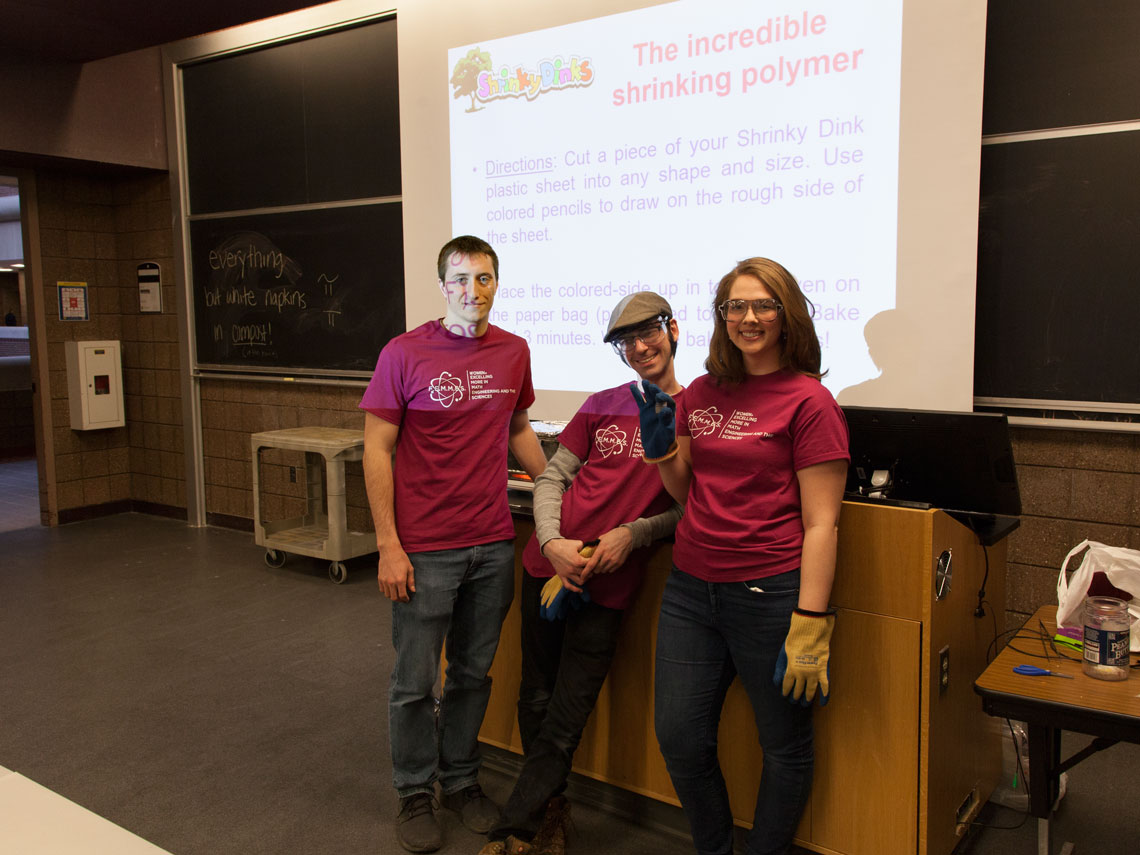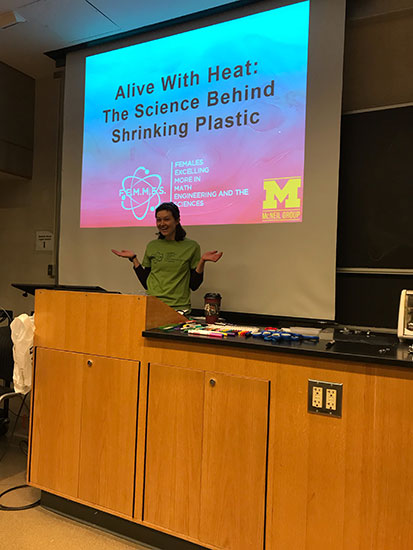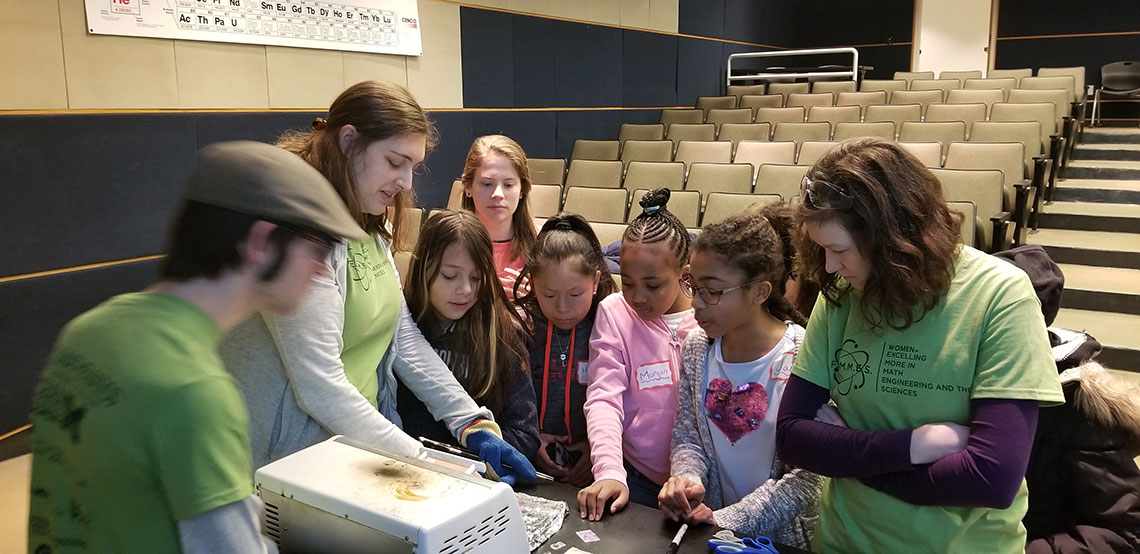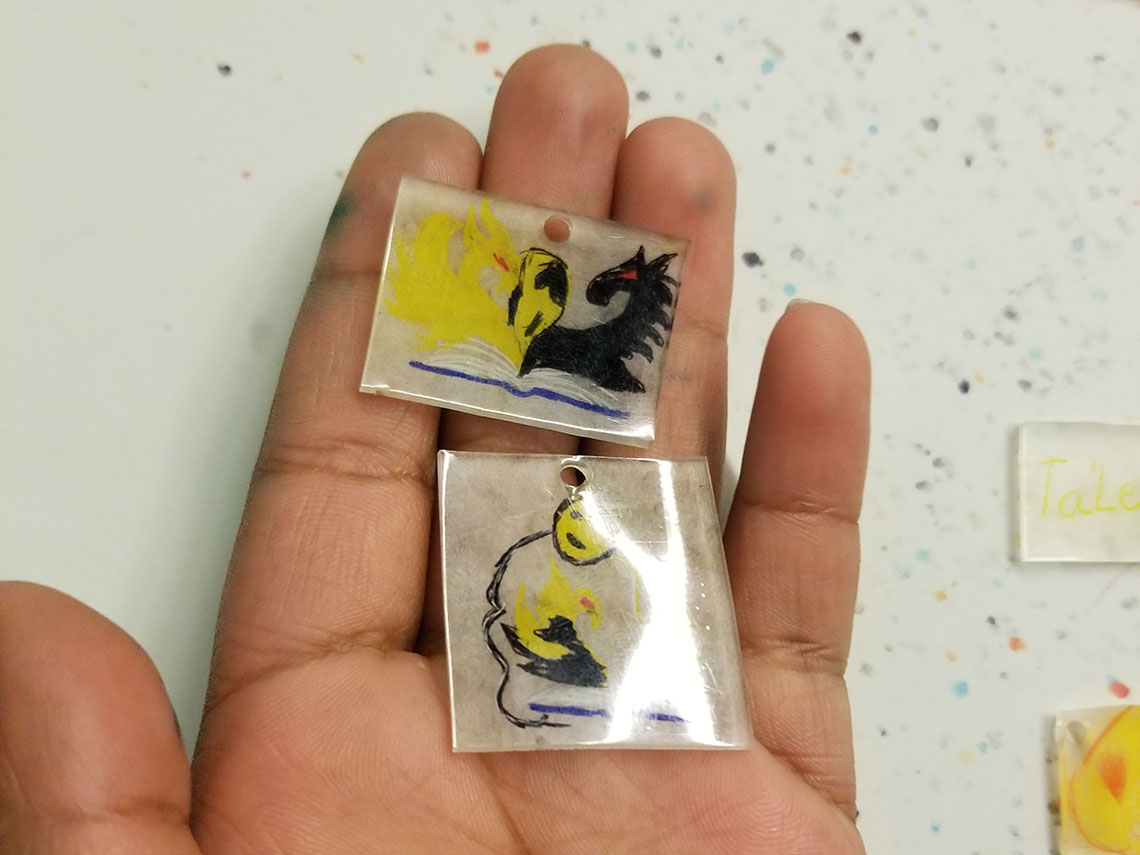Our group is passionate about cleaning up plastics and microplastics pollution from the environment, as well as teaching the next generation of students about sustainable polymers. We organize a department-wide cleanup of Ann Arbor and Ypsilanti parks twice a year, and every summer we teach a two-week long short course on sustainable polymers to high school students. We also run one-day workshops for FEMMES+ on “shrinking” polymers and how their structure and processing impacts their properties. Click on the projects below for more information!
Outreach
Cleaning up plastics pollution and teaching about sustainable polymers.Huron River Cleanup
Each April and September, the McNeil Group organizes ~75 volunteers from the Chemistry Department to clean up ~20 parks in Ann Arbor and Ypsilanti. Over the course of 2 hrs, approximately ~10,000 pieces of trash and recycling are collected and properly disposed of. Using the DebrisTracker app, we document the types of trash collected in a national database. To read more about these efforts, check out this story on the Department Website, or this story in the UM Record, and this YouTube video. Contact Anne if you want to organize a similar effort in your area.
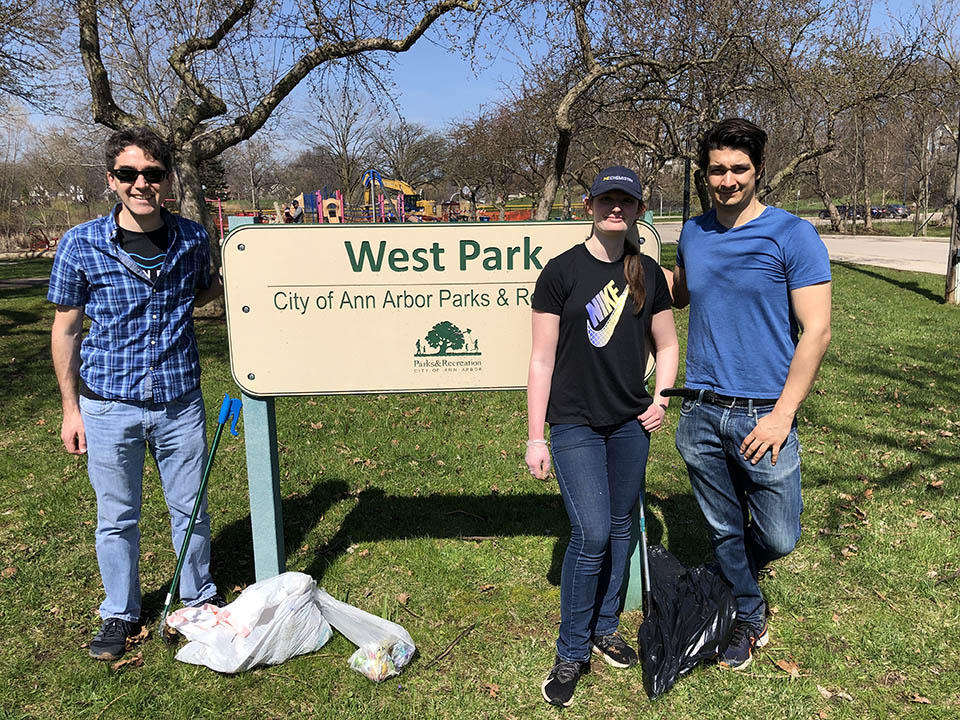
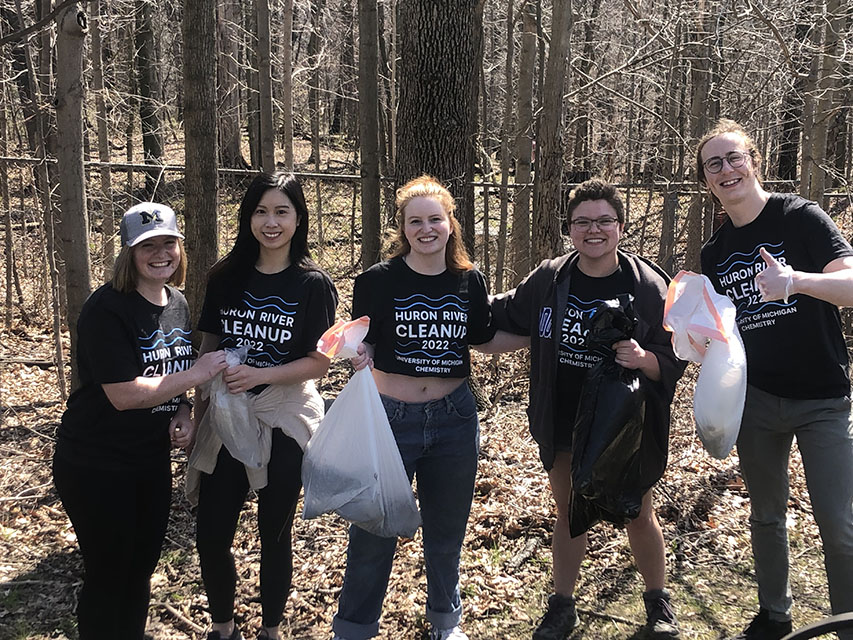
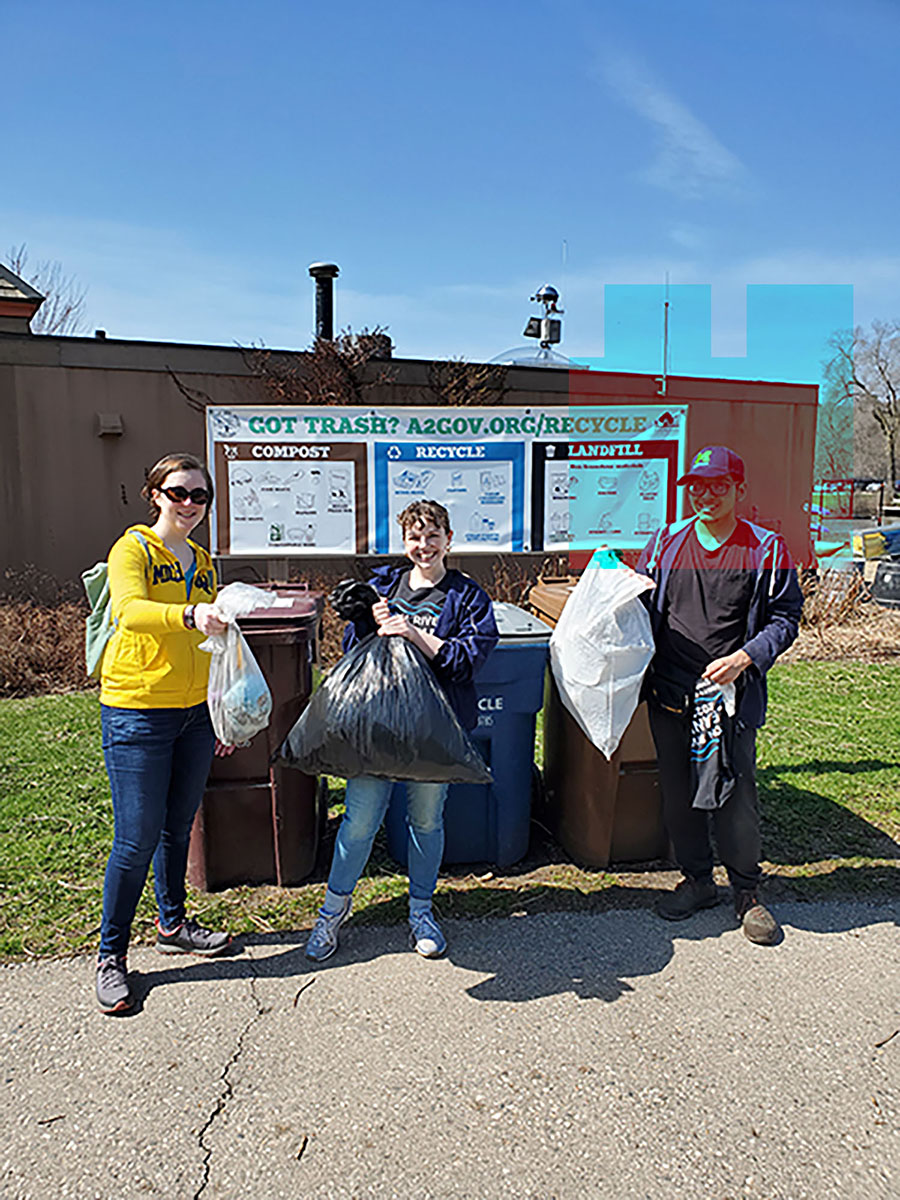
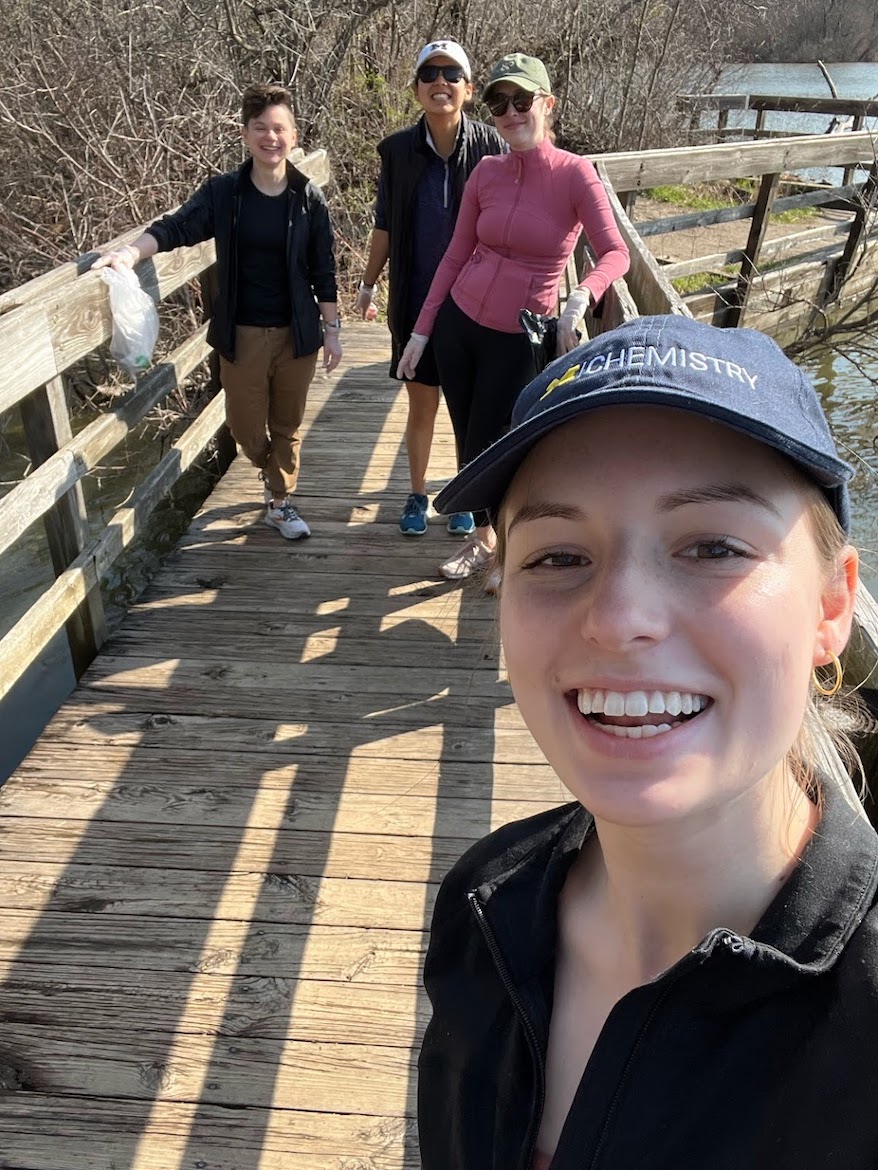
Michigan Math and Science Scholars (MMSS) Program
This annual two-week summer camp serves to provide high school students with foundational skills in science and encourage them to pursue higher education in STEM fields. Our course focuses on topics within polymer science while providing the students with fundamentals of organic chemistry. Specifically, the focus is on sustainable polymers, ranging from understanding the environmental impact of polymers as well as methods for making more sustainable materials. The lab activities are designed to include experiments designed by the students, allowing them to formulate and test hypotheses based-off results obtained from previous experiments. These trials simulated what a “real” research lab workflow is like. Additionally, we include short field trips to demonstrate how the polymers they used in lab (e.g., polylactic acid) are found in real applications (e.g., 3D printing). We also include a creative project in the course, where students work in small groups to research and then create a stop-motion film to present to the class and post on YouTube. The structure of course gives them the tools to learn fundamental lab skills and the opportunity to independently learn more about specific areas that were of high interest to them. To keep with the program’s mission and encourage these student to continue to cultivate their scientific interests in the future, we include an undergraduate panel to discuss how to select, apply, and thrive in college. Additionally, there are many opportunities for the students to informally discuss their inquiries with the course instructors. The course is typically met with positive feedback from the students. Ongoing assessments are being used to evaluate student learning and course impact on their career aspirations.
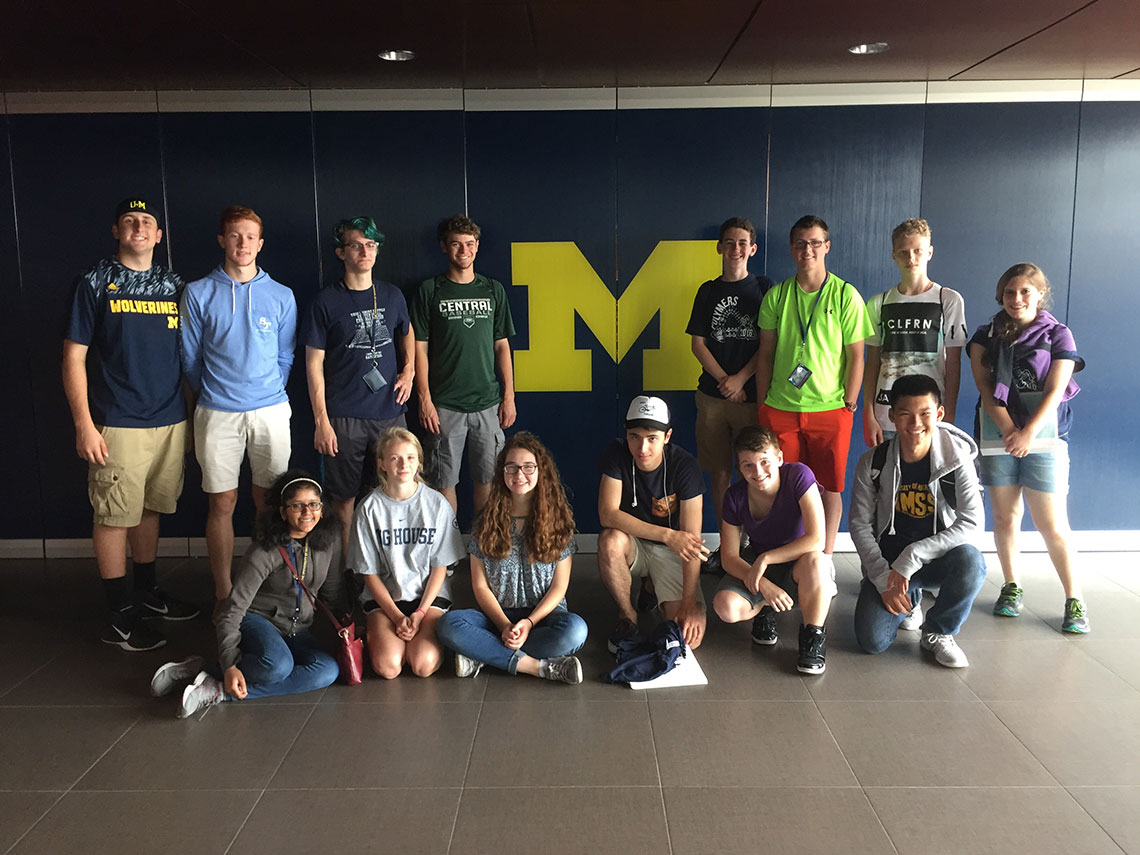
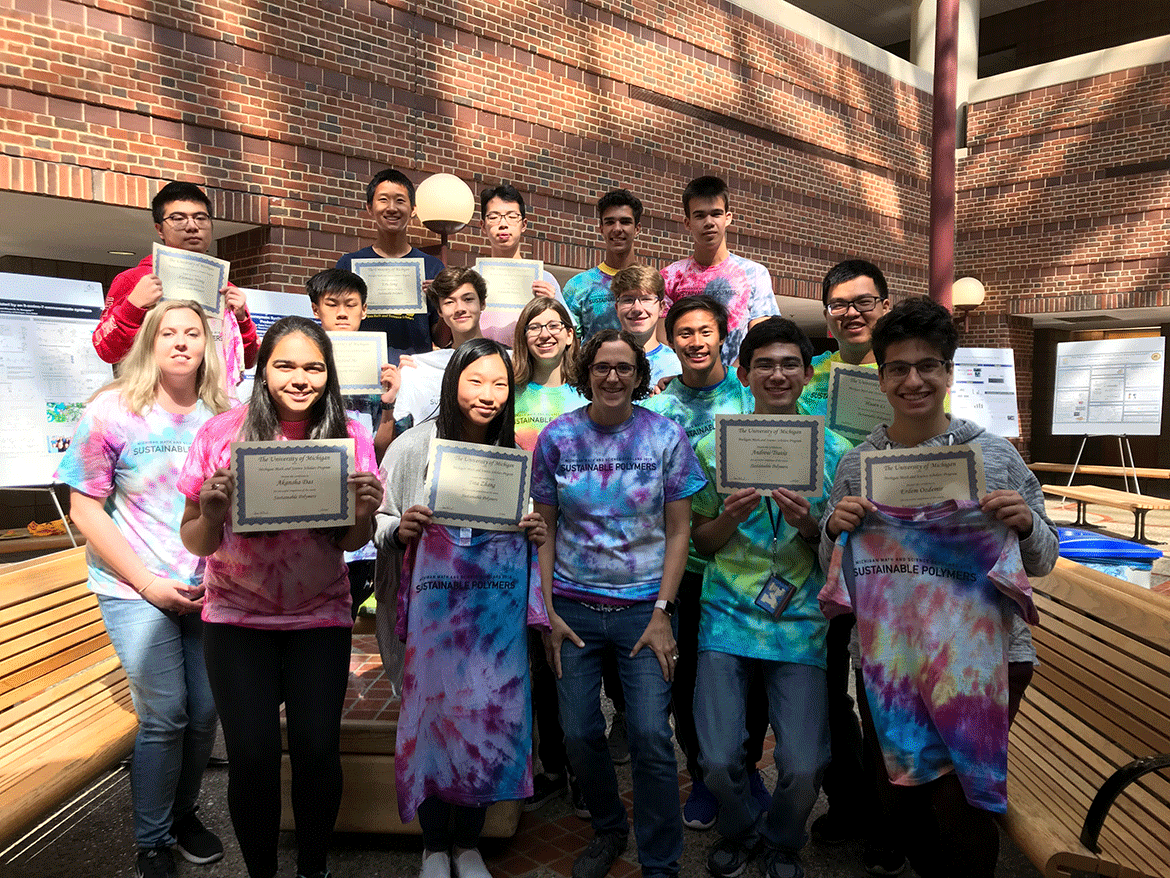
FEMMES
Each year our group does a workshop on “the incredibly shrinking polymers” for FEMMES+, where we teach middle schoolers about how polymer structure, properties, and processing impact what you see and feel.
